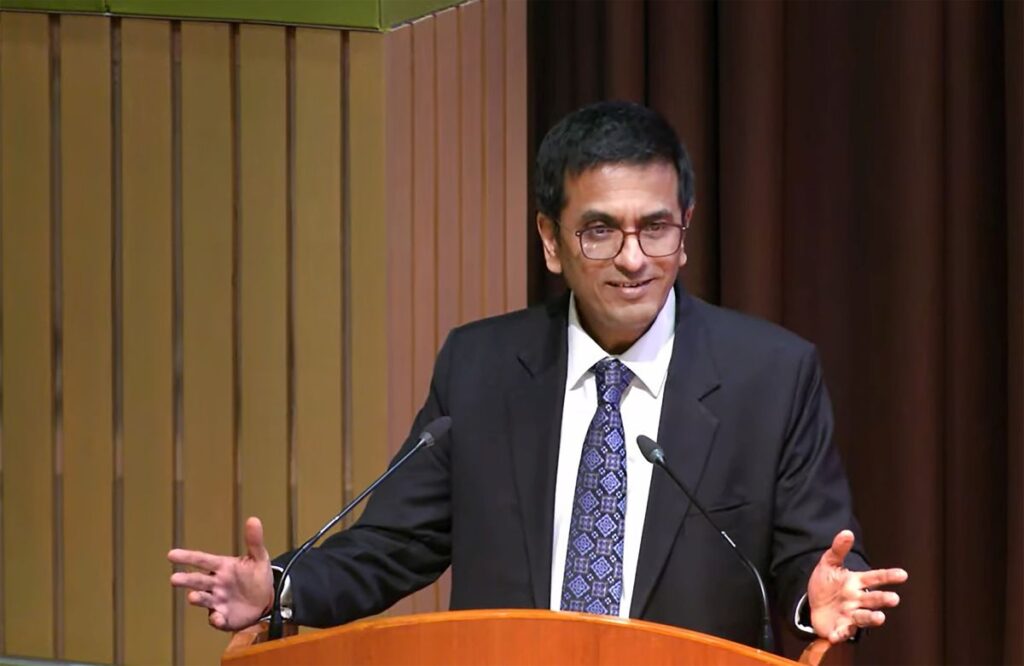Radhika Mittal
Chief Justice of India DY Chandrachud delivered a speech at the J20 Summit conducted in Brazil highlighting the transformative impact of digital technology on the Indian judiciary. The summit hosted by the Federal Supreme Court of Brazil brought together the heads of the Supreme Courts and Constitutional Courts of the G20 countries and representatives of the African Union and the European Union, to discuss pressing global issues such as judicial effectiveness justice, social justice and environmental sustainability.
CJI Chandrachud remarked that the COVID-19 pandemic necessitated a rapid digital transformation in the Indian judiciary. This change transformed the courts from opaque, prescriptive entities into accessible spaces for democratic deliberation. He noted that technology has played a critical role in maintaining legal operations during the pandemic, with more than 7,50,000 cases handled via video conference and important constitutional cases broadcast on YouTube.
Speaking about the effectiveness of the judiciary, the CJI emphasized the importance of a holistic approach that goes beyond evaluating the performance of judges. He argued that true efficiency encompasses the entire legal process, ensuring a free and fair hearing for all. He further explained the responsibility of the judiciary to the public and defended the transparency and comprehensibility of legal decisions to maintain the integrity and accessibility of the legal system.
The role of legal journalists in combating disinformation and promoting an informed public was praised by CJI in the summit. He pointed out that judges in India often treat the bar in a way that could be misconstrued as a bench opinion. However, the country’s strong network of legal reporters helps clarify these communications and prevent the spread of misinformation.
Further, CJI Chandrachud discussed the Supreme Court’s initiatives to facilitate the judicial process. Supreme Court Vidhik Anuvaad Software (SUVAS), an AI translator, has translated more than 36,000 cases into 16 regional languages, improving language accessibility. In addition, the Supreme Court’s Digital SCR (Supreme Court Records) provides free access to more than 30,000 old court decisions, facilitating wider public participation in decision-making.
Recognizing the advantages of the technology, the CJI also pointed out a few possible disadvantages, such as algorithmic bias, privacy issues and transparency in AI decision-making processes. He emphasized the need for careful consideration and commitment to mitigate these risks and ensure that technology reduces existing inequalities rather than exacerbating them.
CJI Chandrachud finally concluded his speech at the J20 summit by highlighting the transformative potential of technology in the judiciary. Digital tools can help create a more democratic and accountable legal system by improving accessibility, transparency and efficiency. At the same time, they emphasize the need to be alert to the risks associated with technological development.

